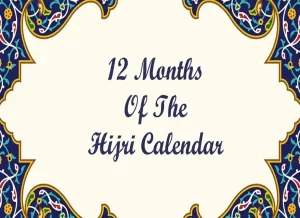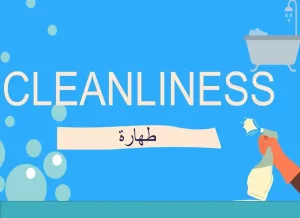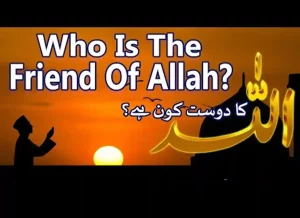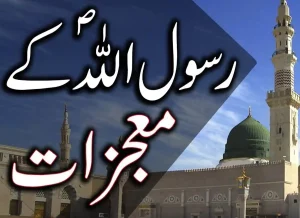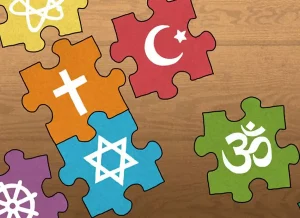Zakat Recipients – Zakat is one of the five pillars of Islam, making it a mandatory act of worship for eligible Muslims. It involves donating a specific portion of your wealth to those in need. Here’s some information about Zakat:
What is Zakat?
- It’s an obligatory annual payment made by qualifying Muslims whose wealth exceeds a certain threshold (Nisab) for one Islamic year.
- It purifies wealth and promotes social justice by distributing resources to those less fortunate.
- It’s seen as an act of worship and gratitude towards Allah (SWT).
Who is eligible to pay Zakat?
- Muslims who have reached puberty, are of sound mind, and possess wealth exceeding the Nisab for one lunar year.
- There are specific exemptions for certain situations like debt and basic necessities.
Calculating Zakat:
- The general rate is 2.5% of your total zakatable wealth (after deducting debts).
- Different assets have specific calculations depending on their nature (cash, gold, livestock, etc.).
- Many resources like online calculators and religious scholars can help with the calculations.
Distributing Zakat:
- You can distribute Zakat directly to those in need or through trusted organizations.
- The Quran specifies eight categories of recipients, including the poor, needy, debtors, travelers, those in debt, and those working for the cause of Islam.
The content
- 1 For people with low incomes.
- Two people with low incomes,
- 3. Those who are responsible for the matter,
- 4 The ones whose hearts need to be convinced,
- 5 for the liberation of humans from bonds,
- Six and (for) those overwhelmed by debt,
- Seven and [for each fight] for God’s name,
- Eight and for The Wayfarer
Every one of the world’s major religions includes some form of almsgiving. However, Zakat Recipients is of particular importance for Muslims. It is a requirement for all Muslims who are financially capable of contributing a minimum of 2.5 per cent of their wealth to the less fortunate. The word Zakat is a reference to purification or growth.
Based on a study by Global Humanitarian Assistance: Indonesia, Malaysia, Qatar, Saudi Arabia and Yemen, which amounts to about 17 per cent of the estimated Muslim population, it is estimated that in these four countries alone, a minimum of US$5.7 billion is being taken through Zakat each year.
There is a consensus that the total amount of Zakat received each year via official channels could be, at the very minimum, around thousands of millions of dollars. If we consider Zakat collected (Zakat Recipients) through channels that are not formal, the total amount could be as high as several hundred billion (i).
Let’s take a look at the Quranic verse which regulates Zakat. Sura Tawba (6) within Aya 60 determines the different categories of eligible people for Zakat.
“The offerings made to God are intended only to be used
[the poor and the less fortunate, and
[ii [iii People with low incomes and
[iii [iii the persons who are responsible for it,
[iv [iv as well as those whose hearts desire to be wooed,
[v [v and to liberate human beings from bonds,
[vi [vi as well for people burdened by debt,
[vii [vii as well for each fight for God’s cause and
[viiifor the Wayfarer]:
This is an ordinance of God. This is an order from God – and God is all-knowing and wise. “
The less fortunate,
The definition of poverty will differ from location to place and the amount of the family. Around 767 million people worldwide live on less than $1.90 daily earnings. In the US, the poverty level for one person is around $12,150. For a household of 4, it’s $25,100.
The poor,
The term “needy” describes someone who has difficulty getting their basic needs promptly. Essential needs include food, clothing, a place to stay, and medical care when required. This could also include transportation if the person needs it to get to work. They could be earning above the poverty level but be unable to pay for their food, medicine, or transportation. They may also need the proper clothing.
The people who are responsible for it,
This includes those who manage Zakat funds in masjid or other institutions. When an Imam participates in the collection of Zakat money, then he may be deemed eligible to receive money from these funds.
The ones whose hearts are to be wooed,
This includes everyone who may not know about Islam or may be sceptical about Islam, as well as Muslims. This category includes those and groups engaged in public relations efforts to promote Islam, Muslim groups engaged in interfaith or inter-communal projects, Muslim media that is mostly focused on the promotion of Islam, as well as universities and institutions that teach Islam to non-Muslims.
To free human beings from bonds.
There are more than 40 million that are in slavery in the world currently. There are 42 million women, girls and transgender people who are required by law to offer their bodies for sale to other people as they lack a source of income. Additionally, there are around one million families who, due to poverty, are compelled to sell their children’s bodies to other people.
And [for] those burdened by the burden of debt,
The most burdened by debts are individuals who may be over the poverty level and whose whose basic needs might be taken care of but who are weighed down by debt in such a way that they cannot promptly fulfil household duties.
And [for every battle in the cause of God,
It also includes those in the world who spread the message of God and are standing for justice and equality and fighting against oppression.
And for Wayfarer.
People who travel with limited resources or individuals, such as refugees or people experiencing homelessness, are not.
The distribution of the money is not restricted just to Muslims. It’s not just limited to relatives and non-relatives. Family members and relatives affected by this circumstance could also be the recipients.
What is the best way to have zakat distributed?
Zakat Recipients – It can be accomplished independently or through companies and Masajid experts.
The ideal scenario is to have a central organization in each city or state to collect zakat money transparently. The collection organizations and individuals should inform the community about centralizing resources and distribute them to the beneficiaries in every category after consulting with trusted individuals in the community.
Zakat Recipients – The thing to keep in mind is that if agencies, masjids, and institutions distribute the Zakat, the community should be aware of its distribution. Also, there should be complete openness in zakat collection and distribution.
Latest Ramazan News
- 7 Heart Warming Duas To Celebrate The End of Ramadan 2024
- Eid al-Fitr: An Introspective Celebration of Renewal and Gratitude
- Ramadan Duas: A Journey of Spiritual Growth and Contemplation
- Fasting According to the Quran: A Spiritual Journey of Self-Renewal
- Ramzan FAQs: Answers to Your Essential Questions about Ramadan
- Laylat al Qadr: Transforming Lives through the Pursuit of Knowledge
- Ashura Fasting: Honoring Moses and Embracing Spiritual Reflections
- Ramazan Begins With Varied Fasting Hours Across The World Wide
- Select 7 Heart Warming Duas To Celebrate The End of Ramadan 2024
- Laylatul Qadr Dua: Seeking Divine Blessings Through Translated Prayers
Categories: PRAYER (Salat), ALMS (Zakat), SAWN (Fasting) HAJJ (Pilgrimage) & DUA (Supplications), Hadith and Tafseer, The Holy Quran, Quran Jaz 1- 114
Topics: Ushr and Zakat, Hijab, Arabic Corner, Faith, Islamic History, Biography, Sirat ul Nabi PBUH, Islamic Studies, Halal & Haram



